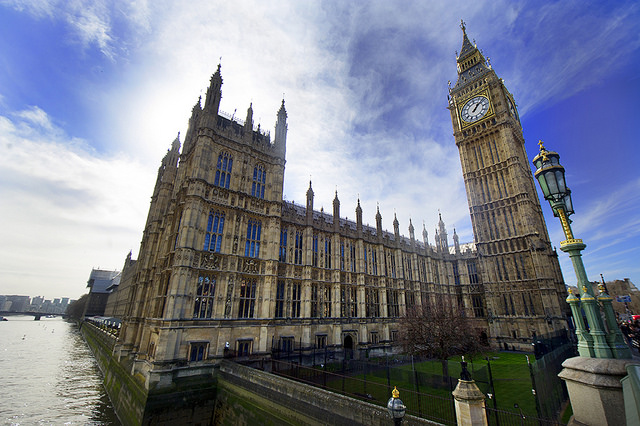Petition to block Trump state visit to UK grows to 1.6 million

A petition to prevent US President Donald Trump from making a state visit to the UK has been signed by more than 1.6 million Britons.
The online petition is part of a global outcry against his ban on mainly-Muslim countries entering the US, introduced by executive order on Friday.
Trump has been invited to make a state visit to the UK by Prime Minister Theresa May later this year, which would usually include a stay at Buckingham Palace hosted by the Queen, and an address to Parliament.
However the invitation, extended after May became the first world leader to meet the new president, has been called premature by former diplomats. This is especially because of the hugely controversial start to Trump’s presidency.
The travel ban bars entry to the US for people from seven mainly Muslim countries - Iraq, Syria, Iran, Libya, Somalia, Sudan and Yemen, and has sparked chaos in US airports. This ban is in place for 90 days, with all refugee admissions suspended for 120 days.
Protests against the move have grown since the weekend, with rallies and protests across the US.
Spontaneous protests took place in cities across the UK last night, with thousands gathering outside the prime minister’s residence in Downing Street to voice their opposition to Trump.
https://twitter.com/factionvideo/status/826188849525186562
Many of America’s leading companies, such as Apple, Google, Facebook and Starbucks have also condemned the move. Several high profile executives spoke out, including Facebook’s Mark Zuckerberg, citing a personal family history based on migration to the US from around the world.
President Trump shows no sign of backing down, however, despite one judge ordering the ban to be blocked.
Launched on Sunday, the online petition has now passed the 100,000 signatures mark which mean the UK parliament must hold a debate on the matter. However the UK government has already brushed aside the demands, with foreign secretary Boris Johnson dismissed the calls for the state visit to be postponed.
Biotech speaks out, pharma reticent
The response from biotech has also been widespread condemnation, though as Endpoint News observes, pharma’s reaction has been far more muted so far.
A poll, conducted by Endpoints News, shows that 87% of industry executives do not support the travel ban, while nearly three quarters (74.5%) also believe that it will have a direct impact on the
The move has also attracted criticism from a range of hi-tech industries, which rely on a small and highly skilled talent pool.
Republican senators John McCain and Lindsey Graham issued a joint statement criticising the move and predicting that it could alienate Muslim populations and stoke the fires of anti-American sentiment, describing it as “a self-inflicted would in the fight against terrorism.”
The Endpoints poll – which at their time of publication had received over 1,000 responses from US readers – illustrated what they describe as “a move that they felt would tarnish the country’s reputation for years to come.”
Bassil Dahiyat, CEO of Xencor, told Endpoints: “We are one of many companies made up of a large percentage of immigrant staff, highly talented and trained. We cease to function without immigrants, period,” before adding, “This move will have a negative impact on the productivity of the biotech industry if it stands. Talent is hard to come by and closing the door to any sources is bad.”
Just one leading pharma executive has spoken out against the ban – Allergan’s Brent Saunders, who tweeted his opposition on Sunday.
https://twitter.com/brentlsaunders/status/825717187684007937
However other major US pharma companies have been silent on the move. The US pharma industry organisation PhRMA, led by CEO Steve Ubl, is due to meet Donald Trump in the Oval Office later today.
The industry is nervous about promises made by the president to clamp down on its drug prices. Trump said the pharma was ‘getting away with murder’ on drug prices earlier this month.
PhRMA has responded by launching a major new public relations campaign aimed at promoting its investment in science and new medicines.










